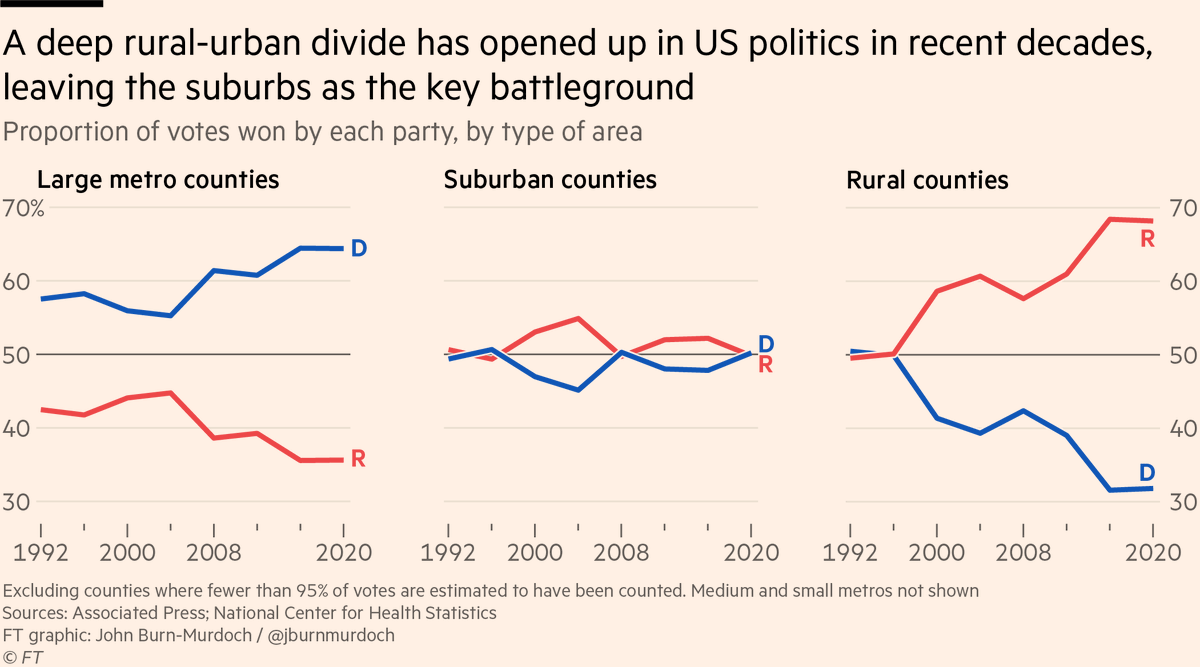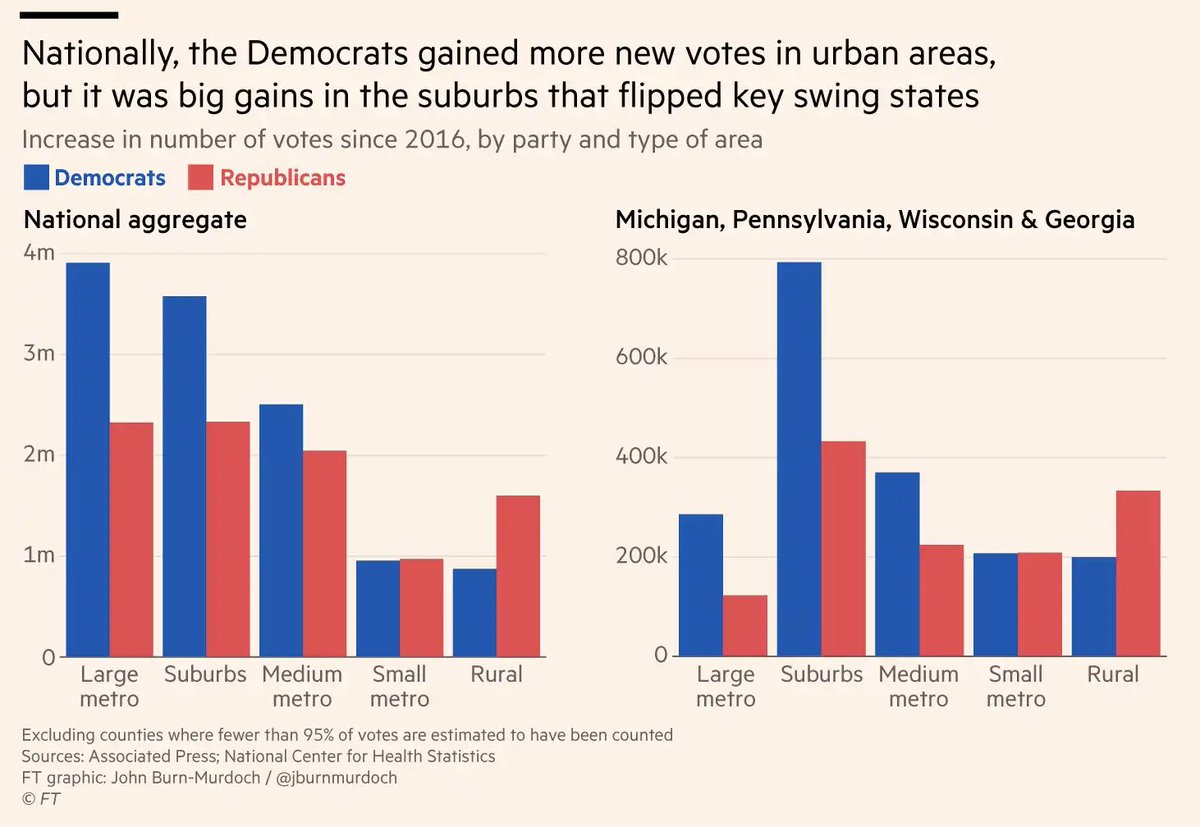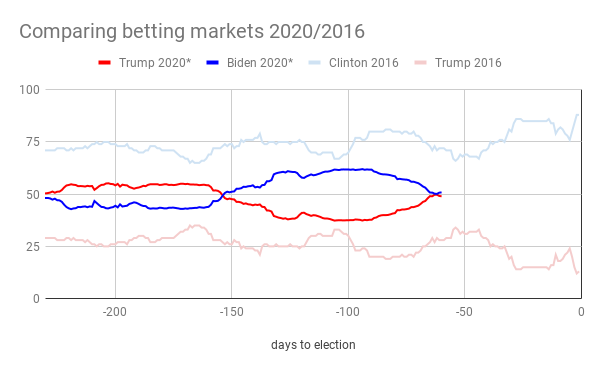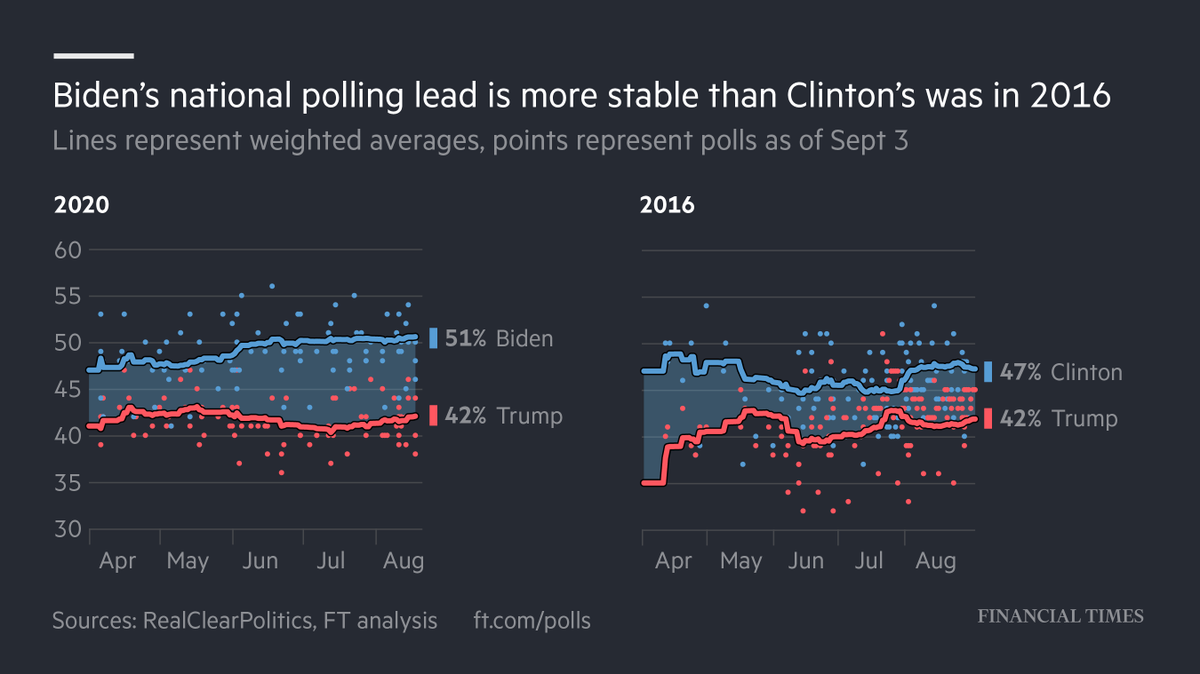
NEW from @Claire_Bushey & me:
In cities/metros across the US, the areas most affected by the pandemic are often the slowest to be vaccinated, reflecting long-standing patterns of segregation
We spent weeks gathering the data from 5 of them
Story:
ft.com/content/7b0db8…
In cities/metros across the US, the areas most affected by the pandemic are often the slowest to be vaccinated, reflecting long-standing patterns of segregation
We spent weeks gathering the data from 5 of them
Story:
ft.com/content/7b0db8…
Our story begins in Chicago, one of the most segregated cities in the US.
HT @ChiVaxBot and @WF_Parker who have been regularly tracking these disparities & whose work partly inspired us to do our own digging into other localities

HT @ChiVaxBot and @WF_Parker who have been regularly tracking these disparities & whose work partly inspired us to do our own digging into other localities
https://twitter.com/WF_Parker/status/1359184037751963649

Variations on this same theme of "Who is vaccinated?" vs" Who is dying?" (this is an actual meme) are playing out in other cities & surrounding areas.
In Washington, DC:
In Washington, DC:

Here's the same data in Baltimore & Chicago plotted a different way: income is highly correlated with first dose vaccination rate, weeks into the expansion of eligibility past Phase 1a ... 

And yet another way of visualizing the racial disparities in vaccinations, inspired by @KFF's state-by-state report kff.org/policy-watch/e…
(Note all records have race/ethnicity. Only Black vs white shown bc the quality of data across cities was less good/comparable for others)
(Note all records have race/ethnicity. Only Black vs white shown bc the quality of data across cities was less good/comparable for others)

Why the disparities? Main factors are access, eligibility & hesitancy.
ACCESS/ELIGIBILITY:
> In the US, vaccine rollout is what @helenegayle called a "patchwork quilt" — the CDC makes recommendations but final plans are left to states & localities
kff.org/other/state-in…
ACCESS/ELIGIBILITY:
> In the US, vaccine rollout is what @helenegayle called a "patchwork quilt" — the CDC makes recommendations but final plans are left to states & localities
kff.org/other/state-in…
ACCESS/ELIGIBILITY (cont'd):
> First-come, first-served online systems can also exacerbate inequalities, groups like @IMPACT4HC say ... it's "like trying to get concert tickets"
> First-come, first-served online systems can also exacerbate inequalities, groups like @IMPACT4HC say ... it's "like trying to get concert tickets"

ACCESS/ELIGIBILITY (cont'd):
> Outreach is extremely important, as @alikhan28 @OakStreetHealth notes.
> Outreach is extremely important, as @alikhan28 @OakStreetHealth notes.
https://twitter.com/alikhan28/status/1361788462047846400
HESITANCY is another factor, thought impt to note that vaccine enthusiasm has increased across racial groups
kff.org/report-section…
kff.org/report-section…

Part of this is rooted in a long history of medical malpractices, often by the US government (Tuskegee, Marion Sims, Henrietta Lacks are among most high-profile cases)
nejm.org/doi/full/10.10…
nejm.org/doi/full/10.10…
However, David Hodge @TuskegeeUniv says focusing too much on the past diminishes the salience of more immediate disparities in health treatments among communities of color: pubmed.ncbi.nlm.nih.gov/25032386/
"The present factors are just as vicious" in creating distrust—"perhaps more so"
"The present factors are just as vicious" in creating distrust—"perhaps more so"
What are some solutions? @helenegayle and others are calling for geographical prioritization of hardest-hit areas or areas w/ high SVI atsdr.cdc.gov/placeandhealth…
> Interestingly, in Chicago's 15 target neighborhoods, ALL who live in these areas are eligible wbez.org/stories/chicag…
> Interestingly, in Chicago's 15 target neighborhoods, ALL who live in these areas are eligible wbez.org/stories/chicag…

Other recommendations include:
> overlapping phases
> a lottery system within phases
> more outreach/transparent communication
> geographic allocation of vaccine supply proportional to need
healthaffairs.org/do/10.1377/hbl… @WF_Parker @GovindPersad @DrMonicaPeek
> overlapping phases
> a lottery system within phases
> more outreach/transparent communication
> geographic allocation of vaccine supply proportional to need
healthaffairs.org/do/10.1377/hbl… @WF_Parker @GovindPersad @DrMonicaPeek
More on that last point, @WF_Parker puts it this way: if a zip code on the South Side of Chicago has 5x the death rate than one on the north side he says it shld have 5x the vaccine supply
"Basically, we need to pour the water where the fire is burning"
ft.com/content/7b0db8…
"Basically, we need to pour the water where the fire is burning"
ft.com/content/7b0db8…
Finally, these inequalities are not unique to the US. @jburnmurdoch notes disparities in the UK vaccine rollout, according to data analysis by @bengoldacre & team
https://twitter.com/jburnmurdoch/status/1354535502439972864
HT @jburnmurdoch for encouraging me to look into this by pointing out how much more data there is in the US given its size — which is true, although the quality/consistency of said data & how to present it is best summed up by:
🙃🙃🙃 and will be the subject of my next thread😅
🙃🙃🙃 and will be the subject of my next thread😅
• • •
Missing some Tweet in this thread? You can try to
force a refresh










